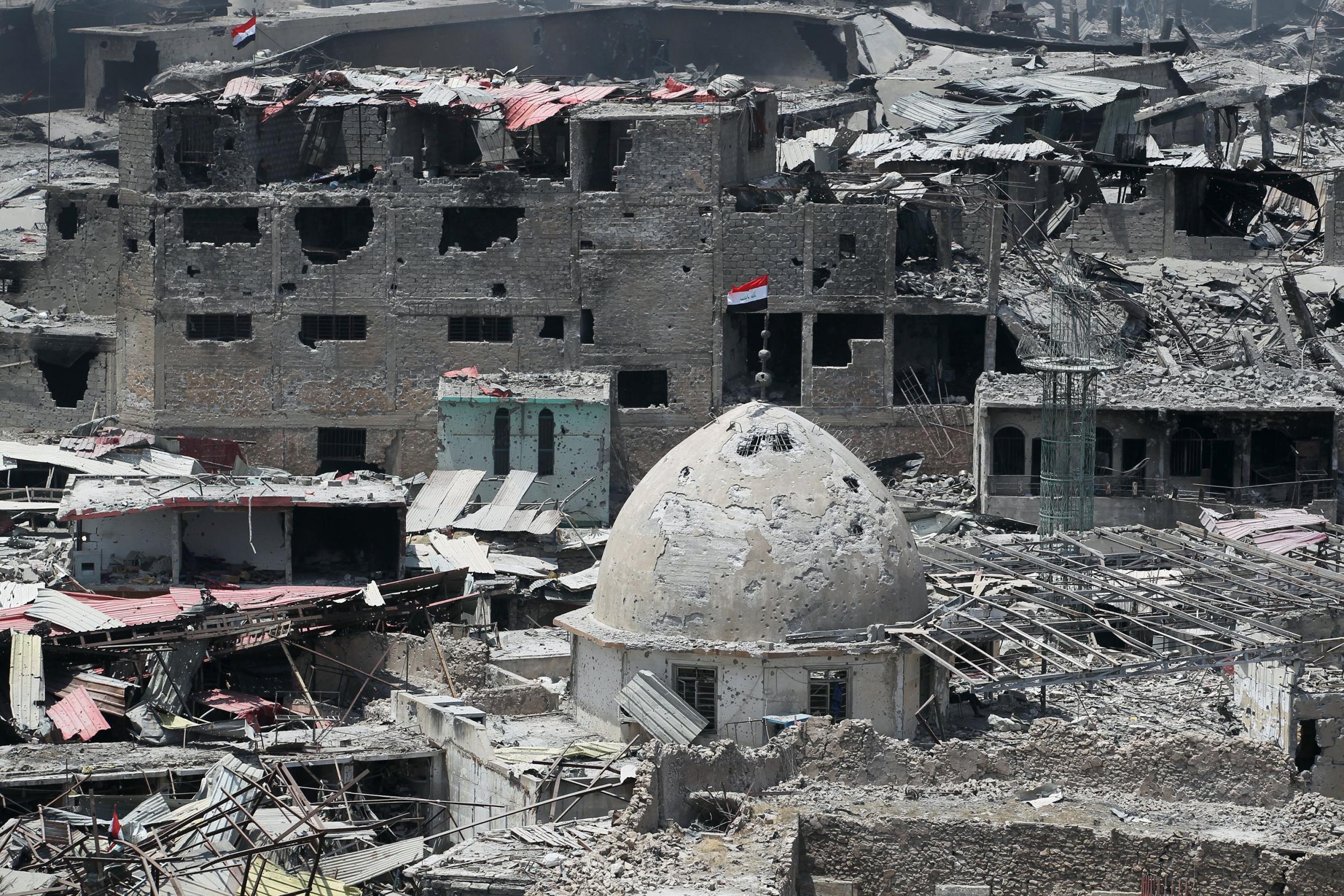Iraq's state TV says the country's prime minister has arrived in Mosul to declare victory over Isis
Victory reported after eight-month battle

Your support helps us to tell the story
From reproductive rights to climate change to Big Tech, The Independent is on the ground when the story is developing. Whether it's investigating the financials of Elon Musk's pro-Trump PAC or producing our latest documentary, 'The A Word', which shines a light on the American women fighting for reproductive rights, we know how important it is to parse out the facts from the messaging.
At such a critical moment in US history, we need reporters on the ground. Your donation allows us to keep sending journalists to speak to both sides of the story.
The Independent is trusted by Americans across the entire political spectrum. And unlike many other quality news outlets, we choose not to lock Americans out of our reporting and analysis with paywalls. We believe quality journalism should be available to everyone, paid for by those who can afford it.
Your support makes all the difference.Iraq’s state television has said the country’s prime minister has arrived in Mosul to declare victory over Isis there after an eight-month battle to drive Isis fighters from the city.
Haider al-Abadi, dressed in a military uniform, said he “congratulates the fighters and the people on the big victory” in Mosul.
Militants were still being “chased” in some areas of the city, however, according to Iraqi TV.
The leader was seen disembarking from a military plane and met by senior security forces commanders.
Iraq began a fight last October to take Mosul back, and was supported by a US-led coalition.
Militants captured the city within days in the summer of 2014, and in 2017 it was one of their last strongholds as the group controlled less than one square kilometer in Mosul's old city.
The battle has left much of the second largest city in Iraq in ruins. It has killed thousands of people, including Iraqi security forces and civilians, and nearly a million are displaced. At least seven journalists were also killed.
As Iraqi troops approached the city, Isis militants packed the Grand al-Nuri Mosque with explosives, bringing it down and preventing troops from the symbolic act of hanging a flag of victory on the mosque's minaret. It was the same mosque where Abu Bakr al-Baghdadi anounced the Isis calliphate between Iraq and Syria three years ago. Isis is close to losing its "capital" of Raqqa in Syria as Arab and Kurdish fighters, backed by the US, advance.
But it still controls several towns in northern Iraq and there are fears the group may increase attacks in urban areas like Baghdad.
American officials described the fight in Mosul, which was hoped to conclude before former President Barack Obama left office, as the most intense and brutal since World War II.
Isis has used woman and children as human shields, detonating suicide bombs and firing snipers to keep its grip on the city.
An Iraqi TV station captured the moment that a woman, holding the trigger to a bomb in her right hand and carrying a child, walked past Iraqi troops in Mosul.
The explosives vest under her hijab did not detonate until she had walked past.
More than 20 women suicide bombers have hidden themselves among civilians and detonated explosives over the last two weeks, a sign of militants' desperation.
As fighting is still reportedly underway, Iraqi troops and civilians still face risks of suicide bombers and guerrilla attacks as they clear houses rigged with bombs so civilians can return home.
Even as bombs may fall silent, the humanitarian crisis is expected to continue, as Iraqi authorities will work to restore electricity and rebuild bombed schools, hospitals and homes. The United Nations estimates the cost of near-term repairs will be around $700 million.
Agencies contributed to this report.
Join our commenting forum
Join thought-provoking conversations, follow other Independent readers and see their replies
Comments